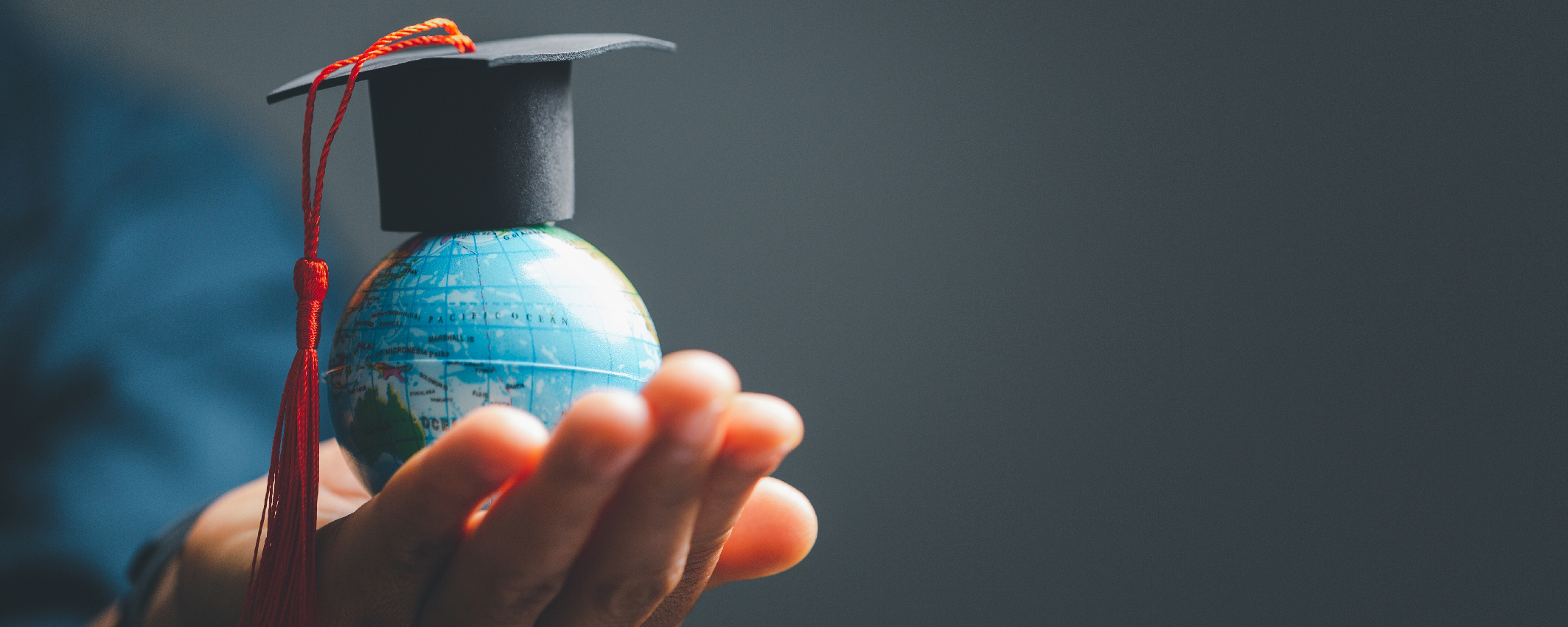 |
CCGL9077 Global IssuesEducation as Solution?: Debating Education round the GlobeThis course is under the thematic cluster(s) of:
|
Course Description
What does education have to do with social problems? In Education as Solution?, we will critically examine whether education has served as an effective solution to social problems or, on the contrary, has contributed to the intensification of existing challenges and inequalities worldwide.
Through a thematic and interdisciplinary approach, this course will delve into different global education debates, such as Women in STEM, the privatization of education, and the emergence of generative AI. We will examine the role of education in different societal progress and cultural contexts, as well as their responses to pressing social issues such as the sexualization of teens, transitional justice, cultural diversity, intersectional inequalities, and the global obesity epidemic. We will also explore how education reforms and policies around the world have adapted to meet the evolving needs of the workforce and societies in the face of global challenges. By exploring the historical context, current challenges, and potential future developments in education, this course aims to cultivate a broad understanding of the subject and its significance in solving social problems worldwide. It will empower students to become informed and reflexive members of the global community.

Course Learning Outcomes
On completing the course, students will be able to:
- Examine diverse global education debates and explore the influence of cultural contexts and societal progress on the role of education in response to social issues.
- Critically evaluate the role of education in addressing current social problems.
- Explain the persistence of structural inequalities in education around the world.
- Collaboratively design and propose an innovative and contextually relevant education policy that addresses both local and global needs.
Offer Semester and Day of Teaching
Second semester (Wed)
Study Load
| Activities | Number of hours |
| Lectures | 24 |
| Tutorials | 10 |
| Reading / Self-study | 36 |
| Assessment: Case Study | 10 |
| Assessment: Group project and presentation | 40 |
| Total: | 120 |
Assessment: 100% coursework
| Assessment Tasks | Weighting |
| In-class continuous assessment (discussions, debates, activities) | 20 |
| Tutorial participation, discussion, presentations | 40 |
| Group project | 40 |
Required Reading
Movie & Documentary:
- Hoosan, D., Hyde, S., Edwardson, R. N., Behrendt, L., & Newell, M. (2019). In My Blood It Runs. Sydney: ClickView Digital Production.
- Khan, A., Rao, B. S., Bijli, A., Gupte, A., Safary, D., Chheda, T. H., Engineer, S., & Chopra, T. (2009). Like Stars on Earth [Taare zameen par]. Burbank, Calif: Distributed by Buena Vista Home Entertainment, Inc.
- Moore, M., Lessin, T., Deal, C., Rowley, R., Roy, J., Proenza, P., Richman, T. W., & Walk, T. H. (2016). Where to Invade Next. Beverly Hills, CA: Anchor Bay Entertainment.
Books & Articles:
- Almukhambetova, A., Hernandez Torrano, D., & Nam, A. (2021). Fixing the leaky pipeline for talented women in STEM, International Journal of Science and Mathematics Education, 21, 1-20.
- Cense, M. (2019). Navigating a bumpy road: developing sexuality education that supports young people’s sexual agency, Sex Education, 19(3), 263-276.
- Davies, B., Evans, J., & Wright, J. (2004). Body Knowledge and Control: Studies in the Sociology of Physical Education and Health. London: Routledge. [Chap. 5 “An elephant in the room and a bridge too far, or physical education and the ‘obesity epidemic’”]
- Giroux, H. A., & Penna, A. N. (1979). Social education in the classroom: the dynamics of the hidden curriculum. Theory & Research in Social Education, 7(1), 21-42.
- Koehler, C., & Schneider, J. (2019). Young refugees in education: the particular challenges of school systems in Europe, Comparative Migration Studies, 7(1), 1-20.
- Postiglione, G. A., Johnstone, C. J., & Teter, W. R. (Eds.). (2023). Handbook of Education Policy. Northampton: Edward Elgar Publishing. [Chap. 7 “Investing in education for the common good”]
- Reay, D. (2017). Miseducation: inequality, education and the working classes (1st ed.). Bristol: Policy Press. [Chap. 1 “Why can’t education compensate for society?”]
- White, J. M., Li, S., Ashby, C. E., Ferri, B., Wang, Q., Bern, P., & Cosier, M. (2019). Same as it ever was: the nexus of race, ability, and place in one urban school district. Educational Studies, 55(4), 453-472.
Course Co-ordinator and Teacher(s)
| Course Co-ordinator | Contact |
| Dr A.Y.W. So School of Humanities (History), Faculty of Arts |
Tel: 3917 2862 Email: soyamwah@hku.hk |
| Teacher(s) | Contact |
| Dr A.Y.W. So School of Humanities (History), Faculty of Arts |
Tel: 3917 2862 Email: soyamwah@hku.hk |

